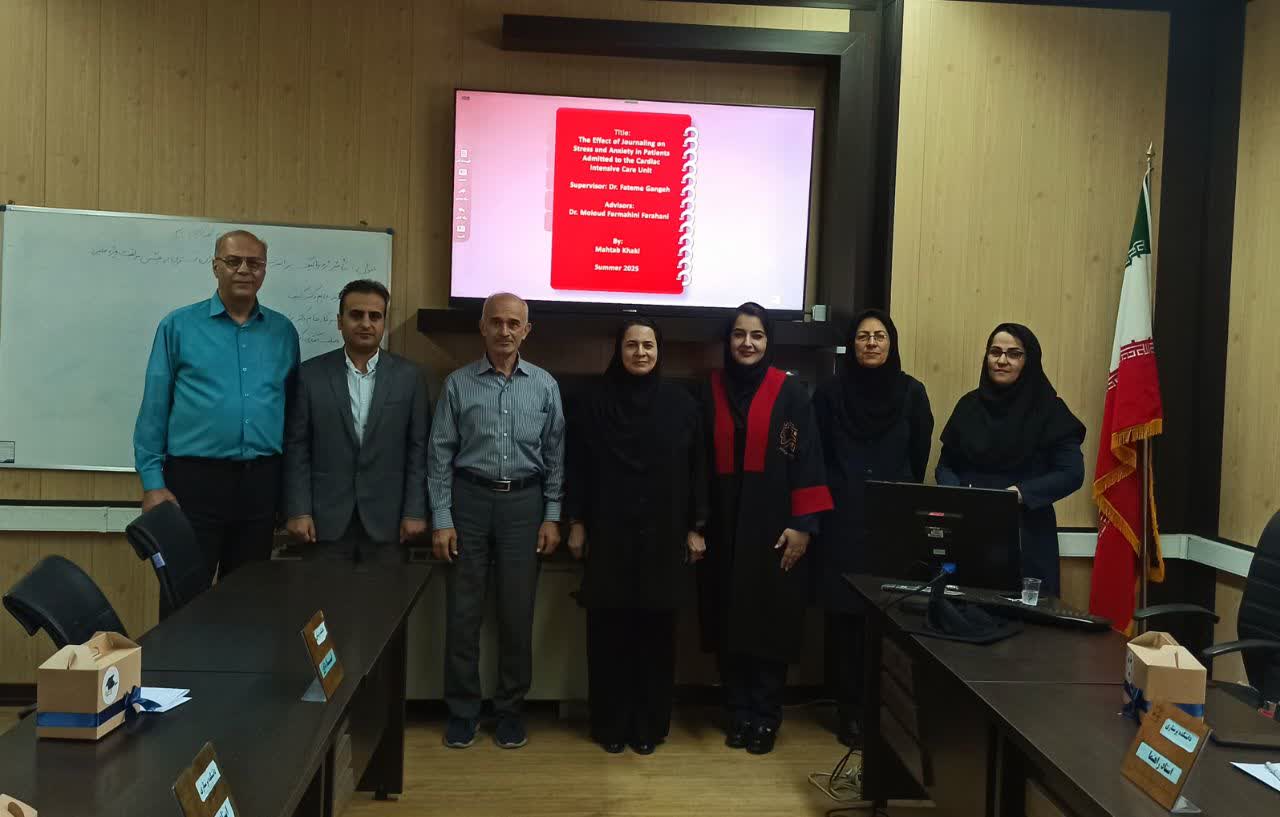The Effect of Journaling on Stress and Anxiety in Patients Admitted to the Cardiac Intensive Care Unit


Student name: Mahtab Khaki
Supervisor:Dr Ganjeh
Advisor: Dr Farmahini Farahani
Defense date:2025/9/9
The Effect of Journaling on Stress and Anxiety in Patients Admitted to the Cardiac Intensive Care Unit
Abstract
Introduction: Cardiovascular diseases are among the leading causes of hospitalization and mortality in different societies. Anxiety and stress caused by hospitalization in the intensive care unit can disrupt patients’ recovery. This study aimed to investigate the effect of journaling on stress and anxiety among patients admitted to the cardiac intensive care unit.
Materials and Methods: This research was a randomized controlled clinical trial conducted on patients hospitalized in the cardiac intensive care unit of Amir al-Momenin Hospital in Arak. Eighty patients meeting the inclusion criteria were enrolled and randomly assigned to intervention and control groups. At the beginning of the study, demographic characteristics as well as stress and anxiety levels of both groups were assessed using the DASS-21 questionnaire. Patients in the intervention group performed journaling based on the Pennebaker and Chung protocol, writing down their feelings and concerns for 15–30 minutes daily over four days. After four days, stress and anxiety levels in both groups were reassessed. Data normality was checked using Kolmogorov-Smirnov and Shapiro-Wilk tests, and analyses were conducted using independent t-tests and paired t-tests in SPSS-26.
Results: The mean scores of stress and anxiety in the intervention group significantly decreased after the intervention (p=0.001), whereas no significant difference was observed in the control group (p=0.46). Comparison of pre-test and post-test results within each group also showed that the difference in the control group was not statistically significant (p=0.31), but was significant in the intervention group (p=0.001).
Conclusion: Journaling can be used as a non-pharmacological and cost-effective method to reduce stress and anxiety in patients hospitalized in the cardiac intensive care unit, and it may be considered in the care protocols for these patients.
Keywords: writing, narrative therapy, stress, anxiety, cardiac intensive care unit, randomized clinical trial
